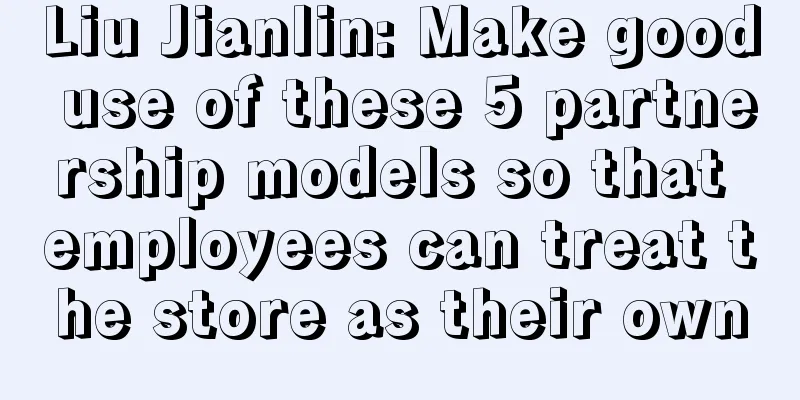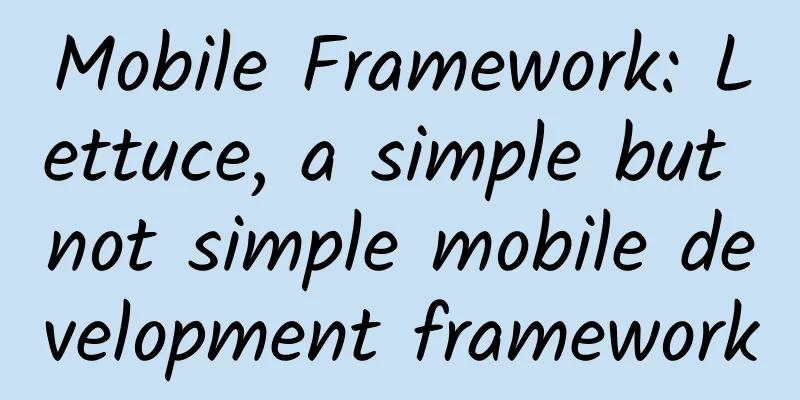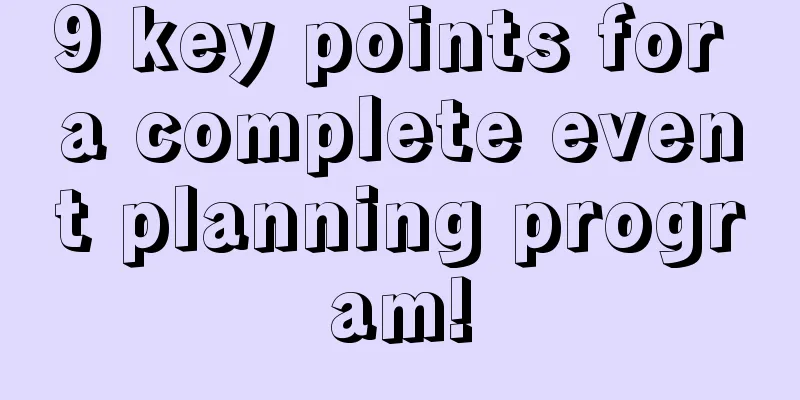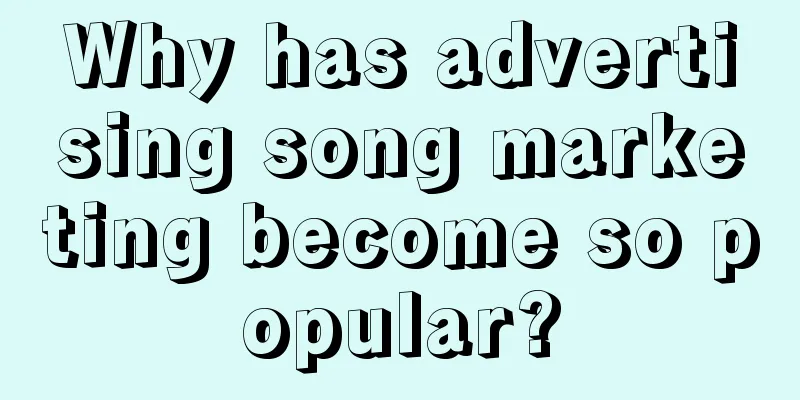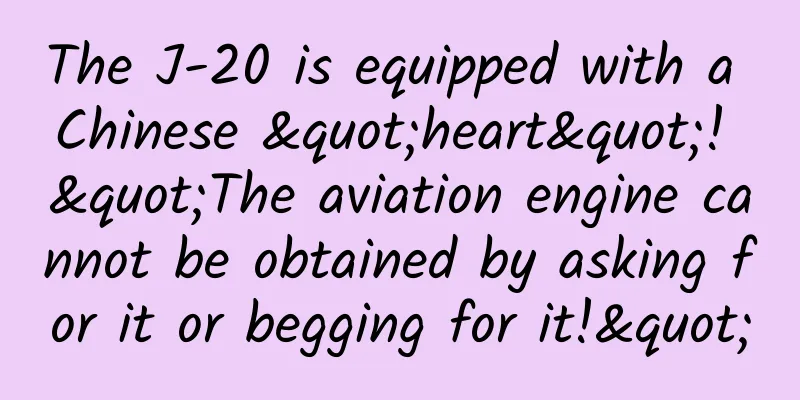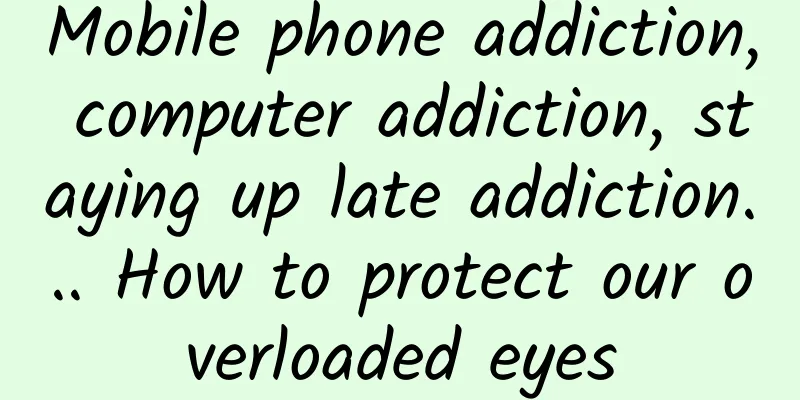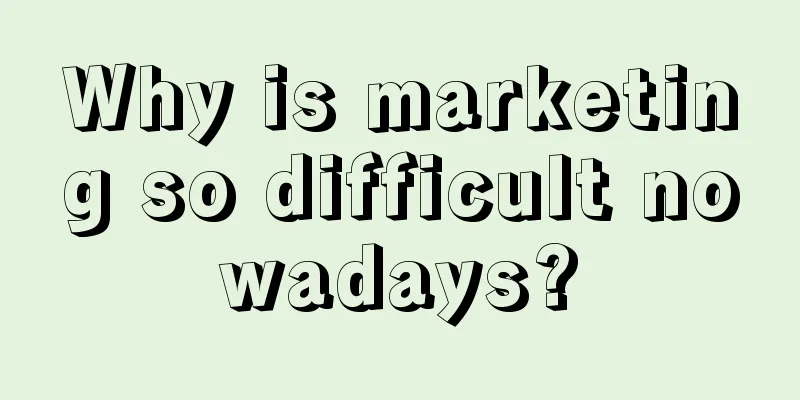Yan Ning: The more unique you are, the broader your world will be | Where have the female scientists gone?
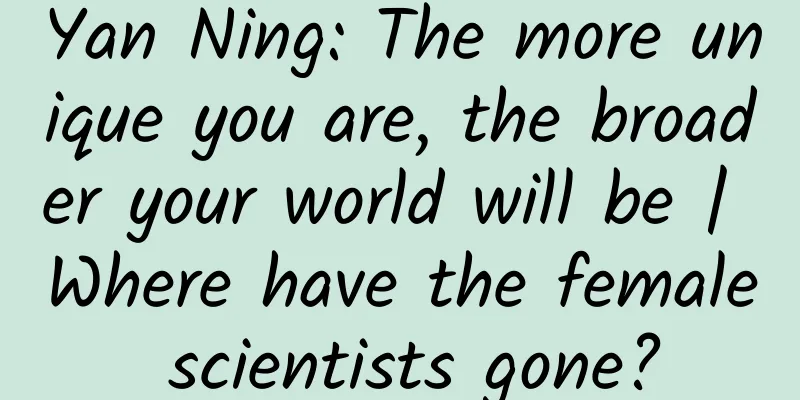
|
At the end of 2022, the 8th Women Scientists Forum, initiated by the famous biologist Yan Ning, was held at Westlake University. This was also the first forum of Women of Westlake (WOW Club), the women scientist club of the School of Life Sciences of Westlake University. This forum invited Dr. Yan Ning, two editors of top academic journals, and an angel fund founder to discuss the topic of "Career Development of Young Scientists". Today is International Women's Day. We have sorted out the main content of this forum, hoping to help young researchers. Arrangement | Idobon Dialogue Guests Wang Jie Senior Editor, Nature He received his undergraduate degree (2003) and his Ph.D. (2010) from Shanghai Jiao Tong University School of Medicine. After graduation, he went to UCLA for postdoctoral research. In 2012, he joined Cell Research as an editor. In 2017, he joined Nature Cell Biology. In June 2022, he joined Nature. Areas of expertise: epigenetic promoting transcription and signal transaction Tam Ka Wing Senior Editor, Cell PhD from the University of Michigan (2012), joined the editorial team of Cell in 2013. Served as consulting editor of Cell Report, acting editor-in-chief of The Lancet Haematology, and co-editor-in-chief of Cancer Cell. Currently, he is the director of strategy and cooperation for Greater China at Cell Press and senior editor of Cell. Yan Ning Founding President of Shenzhen Academy of Medical Sciences She received her undergraduate degree in Biological Sciences and Technology from Tsinghua University (2000), her PhD from Princeton University (2004), and her postdoctoral degree. In 2007, she was hired as a doctoral supervisor at Tsinghua University. In 2017, she was hired by Princeton University as the first Shirley Tillman Professor of Lifelong Learning. In December 2022, she became the founding dean of the Shenzhen Academy of Medical Sciences. She has been organizing the Women Scientists Forum since 2015, which is held annually. Liu Yuwen Founding Partner of Bohe Angel Fund Liu Yuwen is a major advocate and pioneer of China's biotechnology, biopharmaceutical and medical technology industries, with more than 20 years of entrepreneurial service consulting and investment experience. She served as Chairman and CEO and Executive Director of BioBAY, helping to build the industrial park into one of the fastest growing biotechnology parks in the world, bringing together more than 400 start-ups. Liu Yuwen founded the Mint Angel Fund, one of the earliest angel funds in China focusing on medical and health start-ups. In addition, she is the founding chairman of the investment committee of Yuansheng Venture Capital Fund. host Ma Lijia , Distinguished Researcher, School of Life Sciences, Westlake University Yan Zhen, Distinguished Researcher, School of Life Sciences, Westlake University Daily work secrets revealed Q: Many young students do not know what the daily work of scientists, entrepreneurs, and journal editors is like. Please give some specific introductions to let everyone know what you actually do every day, so that they can judge whether this job is what they want to do in the future and whether it is a job they can do. Thank you. Wang Jie: I am currently a Senior Editor at Nature. Let me briefly talk about my work in a day. For editors, the most important task is actually to deal with manuscripts. In academic journals such as Nature and Cell, editors are fully responsible for the entire process from manuscript receipt to publication, so the most important thing is to work together, that is, to read articles, make decisions and discuss with the group. Second, you need to do a lot of outreach to find good manuscripts. Many good articles are not something you can just sit and wait for. You have to go out and solicit them yourself, or attend conferences, do interviews, and discover the bright spots in the process of communicating with scientists, so that they know that their work is also suitable for your publishing platform. During the epidemic, manuscripts can only be found online, so we often need to chat one-on-one with scientists at home and abroad and have face-to-face discussions. Another special part of my work at Nature is that as a Nature editor, I have the opportunity to participate in cross-journal projects, such as the BICCN (Note: Brain Initiative Cell Census Network) project. As Nature editors, we have to connect with scientists in the team, not only to process manuscripts, but also to coordinate the entire Springer Nature internal journals. Finally, when the paper is published, you need to work with your colleagues to put it on a dedicated platform. I cherish this kind of opportunity very much. Tam Ka Ying: In fact, if you ask my daughter, she will think that my job is very simple, just writing emails. The editing work is similar to what Dr. Wang Jie just said, so I won’t go into details. Another part of my work involves cross-departmental communication, which is a training for me and also allows me to learn a lot. We have some accustomed thinking patterns from scientific research training, but now I need to have meetings with colleagues in the marketing department and cooperate with business and management thinking. This is a good learning opportunity that can help me break the inherent thinking of scientific research training. Yan Ning: My work can be divided into four stages. When I first became a professor, I spent the whole day in the lab discussing problems with students, doing experiments myself, reading papers, and writing papers. I enjoyed it. After 2012, I made some good achievements. At that time, I was also an HHMI International Early Career Scientist, so I had the opportunity to go out for meetings and give reports frequently. Therefore, I spent a lot of time in meetings outside and writing papers in hotels at the same time. I was very focused. So later, about 1/3 of the year was spent on the road. Writing papers on the plane was very efficient; the rest of the time in the lab was to discuss topics with everyone. It was still like this until Princeton. The third stage was during the COVID-19 pandemic, when everyone started working online. I think that was a turning point. Suddenly, I was working from home and was a bit isolated from the world. Looking back, the impact on me was more negative than positive. Although I was not affected in reading papers and could discuss topics with everyone online, the lack of communication with people affected some of my thinking. Sometimes, the things that I often came up with in the laboratory, such as a detail, were gone. Now, after I arrived in Shenzhen, I entered a whole new stage that I had never experienced before: dealing with all kinds of people, from all departments, including people from the business community, which I won’t share for now (laughs). I have an expectation that these may have some impact on my personal research in one or two years, but I think it is still worth it. Liu Yuwen: My work can be divided into three parts. The first part is the main business. Mint Angel Fund is an investment fund. The four things of the fund are called "raising money, investing, managing and exiting". Raising money means looking for money. Young doctors and postdocs are mainly responsible for the management of investment projects. Nowadays, the biomedical field will recruit more and more doctors. They have received good scientific research training. After the training, they have worked in the industry for a few years and can come to invest because they can understand the essence of a technology, understand whether this technology is feasible, and whether the application scenarios of this technology can really meet future needs. For example, when studying a new mechanism, a target is found. Can this target be made into a drug? After the drug is made, can it solve unmet clinical needs? These are the things that investors have to determine. Exit is a matter of the financial market. As the main manager of a fund, I have a very professional investment team. My main job is to chat with people, chat with the team members, chat with people who may invest in the fund, and chat with people who may recommend projects. I also chat with some CEOs who have invested in projects to talk about their confusion and challenges, share some experiences, and more often support them like a coach. My second job is to run an incubator. An incubator is a building that you see in Zhongguancun. There are buildings like this near Tsinghua University and Peking University, and near West Lake University. Here, university professors can work with people from the industry, or with their own doctors and postdocs to create a company, and do some experiments in the building, which is equivalent to transforming scientific research results. So the job of an incubator is to provide venues, company registration, recruitment, and even apply for government funding. The third part is similar to industry experts, who often comment on this and provide guidance on that. This work overlaps with the previous two. For example, I came to this meeting today to see if we can build an ecosystem. I found that the work done by the two editors is also to build an ecosystem, linking some information and resources together to help others. This part of the work is actually part of my main work. I singled it out to show that we need a lot of collaboration to help more people in the ecosystem. How can I become you Q: Many students may say, I also want to be a journal editor, I also want to be a PI, I also want to be an entrepreneur... After having such a goal, what qualities and abilities should we cultivate ourselves, and at what stage should we start cultivating them? From undergraduate to master's, to doctoral, to postdoctoral, most people are doing experiments and don't know how to prepare. Can you give us some guidance and suggestions? Wang Jie: If you want to work as an editor in the future, you must first ask yourself when you are doing your doctoral studies, "Do I really like editing?" If you usually find it painful to read papers, or even papers that are not in your field, you may not find it very enjoyable to be an editor. I have been a journal editor for almost ten years, and I feel that interest is the most important thing. When I applied for the position of editor of Cell Research, it was Dang Sheng (Note: Executive Deputy Editor-in-Chief of Cell Research) who interviewed me. He also helped me grow. After the interview, he asked my doctoral supervisor if I was "passionate" enough. My supervisor said, "This girl always likes to read papers." So magazines also need you to be interested and passionate about editing. Second, you can do some preparation while you are doing your doctoral or postdoctoral work. For example, you can take an article and try to think from the perspective of the editor. If you were the editor, how would you evaluate this article? Is it worthy of being published in this journal? Now some papers have comments and rebuttal legends on their web pages. You can read them and, based on these comments, how would you judge if you were the editor? The third is to develop a habit of time management. As an editor, you will never finish reading all the articles and doing all the things, but there are also many "deadlines", so you must learn how to manage your time. For me, there is a boundary between life and work, and both are equally important. I don't want to think about the manuscript after get off work, and I want to have time to do what I like. So every day I have to know what I have to do today and what can be put off until the next day. Another thing is to improve work efficiency. This is actually quite difficult to do. When I first became an editor, I felt that the most troublesome thing was that when I encountered a "borderline paper", I couldn't decide whether to accept this manuscript in a short time (laughs). I might finish reading the manuscript in an hour, but I might think about what to do next for half an hour or an hour and still couldn't figure out the result. So this is also a process of gradual training, slowly learning to be decisive and dare to make decisions. Once you make a decision, you must have confidence in your decision. Tam Ka Ying: Wang Jie has already said it very comprehensively, so I will just add a little bit. People often ask me, "Do you have to be very good at English to be considered for an editor position?" I think it depends on how you define "good". For editors, communication is a very important skill, and it is the most important skill besides reading papers and understanding science. It does not mean that emails should be as eloquent as Shakespeare, but they should be very clear and straightforward, and you should quickly grasp the other party's main points. If you think that communication skills are a particularly obvious weakness of yours, I personally do not recommend you to be an editor. Liu Yuwen I think we should cultivate the ability to love what we do. In any job, you can find something that suits your interests. I used to work in a pharmaceutical factory, and later worked in a science and technology park. There were a lot of things to do, which were very tedious and trivial. But I found that if I could help others solve problems, even if I only solved one of ten problems, people would praise me and thank me. This is the reward I get from my work and the motivation for my work. This is very important. Everyone needs to be affirmed. The second point is that I can learn new things from my work. Every day I meet a lot of smart people, including attending this conference, and I can absorb nutrition. So, while giving, I am also constantly gaining, so that people become more and more open-minded, and the more open they are, the more people they can help, forming a positive cycle. Third, we must learn to make decisions based on incomplete resources and information. I have found that some particularly outstanding people with a scientific research background often find it difficult to make decisions when faced with a specific management problem or coordinating an event. He always feels that it is not enough, "I have to find two more papers." This will miss the opportunity, and secondly, it may lead to systematic deviations in the decisions made, because you cannot let go of your thoughts, and the information you supplement may still be your way. "What kind of logic to use to make decisions at what time" is an ability that everyone needs to train. This ability can be used everywhere, whether it is investment, incubator, scientific research, or PI leading a team, it is the same. Yan Ning: I often tell others that I have a huge advantage, and I hope everyone can learn from it. My name is Yan Ning. If we follow the 77th generation of our surname Yan, I should be called Yan Shining. Shining in English is shining. What does it mean? It means that even if others don’t give you sunshine, you should also shine. It means that even if others don’t praise you, you should also find a sense of accomplishment. This sense of accomplishment can be big or small. For example, if I run a piece of rubber very beautifully, I feel very accomplished; or if an experiment failed yesterday, but I can find out the reason myself, I feel very accomplished. So I think my kind of "show-off" (laughs) - maybe many people can't stand it - but it is very positive. I really suggest that people have a lifetime, "live towards death", whether you are happy or unhappy, you are still alive, so get a good night's sleep every night and eliminate negative emotions. This is the first rule. The second is to learn how to allocate time. I am now building SMART in Shenzhen. Many people ask me how to allocate my energy. In fact, I believe in specialization. For example, although I am the dean, I have two jobs: one is to ensure the funding of our Academy of Sciences through various channels to the best of my ability; the second is to ensure that the best academic people are recruited. At the beginning, I was the protagonist, but as more partners come together, I will gradually fade out. In the team I formed at the beginning, some people specialized in administrative management, which we called operations COO, some specialized in dealing with the government, some specialized in infrastructure and platform construction, etc. I trust them, and there is a communication mechanism. So you should try your best to focus your energy on what you are best at, and find the most suitable people for other places. The third is "priority" which I often emphasize. You may be faced with many things, but you should save time to do what you think is most important, and ignore some things. For example, our COO is very glamorous every day, which is her professional habit. I like her look very much, but if you ask me to spend 20 minutes on makeup every day, it is impossible. I want to save this time to do what I think is important. Good steel should be used on the blade. About Career Planning Q: Dr. Wang Jie, you were a teacher before becoming an editor. Like many of our classmates, you also went through the usual experiences of studying for a PhD and doing postdocs abroad. We would like to know when you decided to become an academic journal editor from the perspective of career development? Wang Jie: When I was in my first or second year of doctoral study, I attended an Asia-Pacific Cell Biology Conference. It was my first time to attend a conference. I didn’t know Dangsheng at that time, but I saw him often asking questions at the conference. My doctoral supervisor talked to me privately at that time and said, “I don’t think you are very good at hands-on work, but you like to read and write papers. Do you think you would be interested in such a position?” At that time, a small bud was planted in my heart. But at that time, I had no idea about academic journal editors, and I didn’t know what editors did. After I finished my postdoctoral work at UCLA, I returned to China to look for a job. I didn’t set my mind on being an editor, and I looked for other jobs. It just happened that Cell Research was recruiting at that time. I saw the job advertisement and applied without hesitation. I got the offer, and everything went very smoothly. I thought I would like the job of editing, so I gave it a try. After doing it, I felt quite accomplished. Just like Mr. Liu said just now, I also like to be praised. Until now, there is still a folder in my mailbox, and I put all the emails praising me in it (laughs) to encourage myself. It can be said that being an editor was a natural thing for me, and I was quite lucky. Q: Dr. Tam, what is the career path of a scientific journal editor? In addition to reading manuscripts, what other abilities do you need to accumulate or focus on cultivating? Tam Ka Ying: Actually, I am not qualified to give career development advice because I did not make any long-term development plans for myself before, and I am the kind of person who cannot predict what will happen in five years. I can first briefly introduce the direction that I have seen my colleagues take. At Cell Press, if you are purely an editor, there are different business levels, junior and senior. The person who runs a journal is the editor-in-chief. We call it Editor-in-Chief, and Springer Nature calls it Chief Editor. It's the same. Of course, most editors-in-chief also need to read manuscripts, but there is also management. Managing a group and managing a journal is very different from simply reading academic papers and discussing academic issues. I have been seconded several times at work and learned a lot in this area. I am very grateful to the company for giving me such opportunities. To some extent, this is no longer a simple editorial career path, because it is a bit business-oriented, such as publishing director, which is also a position in our industry. You are actually more moving towards business development and business management. We have had editors who have gone the publisher route, managing a series of journals instead of dealing with individual manuscripts. Some colleagues left their editing positions and went to research institutes. This is more common in the United States, and I believe it will also gradually increase in China. They do project management, support work across departments and colleges, revise articles and fund applications, and even make suggestions on research directions. Because the information editors receive is very broad and diverse, especially the editors of comprehensive journals, the perspective of looking at problems is different from that of PIs who are particularly deep in a field. There is no difference between the two, but the perspective of editors can be helpful to PIs. Some editors go to work for funding agencies, such as the NIH in the U.S. There are many career options. My personal view is a bit similar to Wang Jie's. I advocate that you should do your best to do what you are doing at the moment, and don't think too much. Of course, I am not a person who can see far ahead. My doctoral supervisor is the kind of person who can see 80 years old at the age of 18. It's amazing. I don't think I can learn it. This ability is not in my genes (laughs). But I enjoyed my PhD and did experiments. Many of the skills I use in my editing work were acquired during that time, although I did not acquire them specifically for the purpose of being an editor. I believe that if you give your all in everything you do, you will learn something that will be useful in the future. Although I cannot see that far ahead, looking back, I have put all the experience I have learned into practice. If you are constantly aware that you are making progress, your skills are increasing, and your abilities are improving, then you should be "safe" because you will always need them. So people like me who don't have such a long-term vision actually have a chance to succeed. We just need to do what we should do well and then take it one step at a time. Q: Professor Yan Ning gave up the favorable conditions abroad and chose to return to China to establish SMART. What kind of success do you hope to achieve? And what advice do you have for future young professional scientists? Yan Ning: Thank you to this classmate for giving me this opportunity to advertise SMART. First of all, I don't quite agree with the statement of "giving up favorable conditions abroad". What does favorable mean? In terms of natural environment and living environment, I like Princeton very much. I don't need a very luxurious life. The quiet countryside of Princeton is the best place in the world in my heart. But if you want to live like Beijing, where you can order takeout at 2 a.m., Princeton can't do that. Everyone has different standards. So it’s not a question of giving up or not. In terms of development, it’s not the same era as it was in the past. The support I received at Princeton and Tsinghua is similar. I never worried about funding at Tsinghua, and I never worried about funding at Princeton. Maybe I didn’t cherish it (laughs), but I didn’t feel like I was giving up anything. For me, it's about constantly fulfilling my dreams. I went to Princeton to be a professor, and the conditions they offered me were better than I expected. Five years after the start-up, there was still a lot left. But even if the funding was very small at the beginning, I would still go, because being a professor at Princeton is my dream, and fulfilling my dream is more important than anything else. Similarly, I value Shenzhen now, probably because although its economy is very developed, it lacks research-oriented universities and has historically focused on undergraduate education. For such a large economy, basic scientific research and applied transformation research are not enough in terms of original innovation, and there is still a very broad prospect. How lucky a person is to have such an opportunity to play a relatively important role in its development process. Although I may not be the best candidate, since Shenzhen has chosen me, I will go all out. The funding I received in the past was people-oriented. I could do whatever I wanted without having to apply for project funding endlessly. This is the best model for supporting scientific research in my mind. I want to replicate this model and explore this mechanism in SMART to provide stable support, which is "competitive renewal". The most important thing about this environment is that it can stimulate people's inner driving force. Whether they are young or senior researchers, they don't have to think that I am doing this thing just to get my house or salary. I am very happy that Shenzhen City trusts me so much and provides me with such a platform. I hope to realize this ideal and hope that everyone can really do scientific research freely within certain boundaries. Of course, everyone is also welcome to "join us and be a SMARTer". How to choose in life Q: Professor Yan Ning, after graduating from a PhD program, should I do a postdoc or go to school to be a lecturer or research assistant? Which one should I choose? If I do a postdoc, how should I choose a research group? Now that the research conditions in China are getting better and better, is it necessary to go abroad for a postdoc? If I want to do good research in the future, do I have to have the experience of going abroad? Yan Ning: Everyone has his own path to follow. Instead of asking me, you should ask yourself what you really want. Just now, someone on the live broadcast platform asked me to say something to young scientists, so I answered this question at the same time. If I were to say one thing, it would be that you have done your best and you will have no regrets in your life. This sentence may sound a bit empty, but in fact I have always emphasized that people only have one life, so don't worry about how others live, what you want is the most important. I agree with Jiaying's words "you can't see five years later", and I also have a saying "plans can't keep up with changes". Sometimes, I have the spirit of "singing when you are happy in life", because I like Li Bai and Su Dongpo, both of whom are a bit heroic. I just keep moving forward, and if I make a mistake, I will fall and get up and continue walking. As for whether to go abroad or not, from my personal perspective, I have returned to China now, and I naturally hope that good PhD students can stay in China, because we cannot recruit good postdocs in China now. One of my sweet "trouble" at Princeton is that the postdocs are all very capable, and it seems that I am useless, so you will see that I have given a lot of corresponding authors. Everyone should be confident, when you do well, your ability may actually exceed that of your supervisor. Why did I go abroad? I just thought the world was so big and I wanted to go out and see it, it was that simple. Some people may have other concerns, such as needing to take care of their families, etc. Everyone has to make a decision based on their own situation. In general, it is a good thing that you have such an experience, that is, you go abroad not as a tourist, but live, work, and study there for a period of time, and experience different laboratory culture and scientific research culture. However, you must analyze the laboratory you choose and the scientific research level of the supervisor you choose, rather than making a choice based on whether it is in China or a foreign country, Tsinghua University or Harvard University. In short, the specific situation should be analyzed specifically. I think when you ask this kind of question, the answer you get can only be a reference. Sometimes you may get lost when you hear too many voices. I will give you a way, throw a penny. At the moment when the penny falls, you will know whether the result is the same as your idea or different. That moment can help you make a decision. Q: I am a postdoctoral fellow, but I am not particularly confident about my future output. I am also of a certain age now, but I really like scientific research. Do I still have the opportunity to consider becoming a scientific editor? If I want to be an academic editor, especially to become an editor of a top journal like you two, is there anything special I should do right away? Wang Jie: The simple answer is: of course you can. I don't know what your concerns are. Why do you think that being an academic editor means you can't do this or that, or you have to do that? Ma Lijia: Maybe I’m lacking a mentor who loves to praise people (laughs). Wang Jie: Academic journal editing is indeed a relatively niche career path, but it is slowly expanding, especially now that there are more and more editors based in China, and there are many opportunities. As for how to become an editor of a top journal, Jiaying directly applied for a position at Cell, and I took a roundabout way to save the country, first doing Cell Research, then going to Nature Cell Biology, and then to Nature. Nature's editing is relatively stable, and there are not many vacancies. You can first pay attention to other sister magazines in the publishing industry, such as Nature Communications. In fact, the academic editing industry is relatively short of people, there are many new journals, and there are also many submissions. You can pay attention to our advertisements and apply boldly. Tam Ka Ying: I think it is difficult to do well in any field. I am disgusted by the argument that “failed scientists go to be editors”. I do not agree with it. I do not think that choosing a different path is a failure. But I did have a strong psychological struggle. When I was deciding whether to do a postdoc in the United States, I kept asking myself “Am I a deserter? Should I despise myself?” At that time, I had not yet joined Cell. So what I want to say to this postdoc is that the first thing you need to consider is confidence. This is more important than deciding which industry to go to next. Because every industry has its challenges, whether it is a top journal or other journals, there will be its own difficulties. You should first think about what drives you and what excites you. What makes you want to get up and go to work? This point will change. It is no longer the era of our parents who would work in a company for a lifetime until retirement. When you have confidence in yourself, self-awareness, and understanding of your interests, then career choice will not be a big problem. Being a woman, being a mother Q: Mr. Liu, as a serial entrepreneur who is always opening up new frontiers, do you often have to deal with people of various educational backgrounds and personality traits? In terms of team organization and social interaction, do you have any experience from a female perspective that you can share with everyone? Thank you. Liu Yuwen: I can answer this question, but like Yan Ning, I particularly dislike people talking about beautiful scientists or beautiful CEOs. I don’t like to emphasize these things. I actually have a mother hen mentality, and I won’t let others fend for themselves. I don’t know if other people have this mentality, but when you mention “female perspective”, I immediately think of the image of a mother hen. For a long time, I was either called a mother hen or a kindergarten principal. In short, since 2005, I have been dealing with people who graduated from prestigious universities and have impressive resumes but have never started a business, and I have accompanied them all the way to today. When dealing with people, keep an open mind and you can learn from everyone. While you are helping him, he is also helping you. As you get to know him better, you will know what kind of advice, ideas, and resources are suitable for him. At this time, you will not pay attention to his personality traits. Of course, maintaining some empathy can make us give advice more equally and make it easier for the other party to accept it. Q: When your children were young, did you ever feel anxious about not being with them all the time? Can you give some advice to young girls and young mothers on how to deal with these anxieties? Liu Yuwen: I think people who are anxious will worry about everything; people who are not anxious will not worry about these things. My daughter has been very busy with work since she was four years old, and I basically couldn't take care of her. But now she is doing well. She is a senior in college, enlightened, and knows that she should study hard. I asked her, if I could start over, would I take care of her more and spend more time with her when she was a child? She said no, I want to have a happy childhood. I gave her the choice, she could do this or that, and of course she would be responsible for her decision in the future. Some people may be anxious by nature, they are competitive and want to be better than others, and they want their children to have the same or even higher IQ as themselves, and have the same self-discipline as themselves. If they find that their children are not born like this, they will be anxious and spend time to make their children the way they want to be. On the one hand, when you are with your child, what do you think he/she needs most? I think the basic parenting part is well supported by society now. When my daughter was young, she had a class on weekends, and even my middle school classmates helped me pick her up and drop her off. When my partner and all the elderly people just don’t have time, I can also find someone to help, so the division of labor and coordination in time is not a problem. There is a theory in management that if a company has a new task, should it be assigned to the person who is relatively free or the person who is relatively busy? Generally speaking, it should be assigned to the person who is relatively busy, because he is efficient, he knows how to handle multiple tasks at the same time, how to prioritize things, and his logic and ability are stronger. What I mean is that if you have one more thing, you don’t necessarily need to spend the same amount of time. I can manage my own time. I value the rewards that my career brings me, and I will not completely sacrifice myself for my children. Peer pressure, unavoidable pressure Q: How should we deal with peer pressure? For example, my classmates have become PIs at Westlake University, published papers, or started successful businesses and are worth so much, but I have nothing. How should I deal with it? Yan Ning: I'll go first. I'm sorry for putting too much peer pressure on everyone, but Hu Min put too much peer pressure on me back then (laughs)! I'm just kidding. I think it is to turn pressure into a positive energy. After you have experienced it, looking back, it is really nothing. If you compare yourself with a specific group, your vision is narrow. What you really need to compare in your life is your past and your future, not others. Tam Ka Ying: Pressure does exist, but it is also self-inflicted. There are always people who are better than you. If you keep comparing yourself, you will definitely feel pressure. But you have to understand yourself. My personal habit is to compare myself. You always have to know "what makes you feel worthwhile", and then the fun you get in the process, you can enjoy it secretly, this is your own, and others can't take it away. Of course, there will be pressure in an evaluation system. What if others have published CNS but you haven't? There are only so many positions on the platform. But from another perspective, maybe you are the kind of person who has been honing his skills for many years, and maybe you can be successful in a different industry. So I think you should first see your passion clearly, and then see your ability clearly, and try to match the two. Wang Jie: In the past few years, I did have peer pressure. Many colleagues went to be editor-in-chief and managers. They asked me, "Why are you always working as an editor? I have been working for so long?" I feel like my life trajectory should have a trend of going up one stage at a time, as if I have to have a five-year plan every five years, and I have to jump up. But now I have slowly reconciled with myself and feel that there is no need to do this, it depends on my interests. My interest is still still in the editorial work, and I am not ready to go to another track. Maybe I will change in a few years, but now I will not be particularly anxious. Liu Yuwen: I think peer pressure is a worry that only academic masters have. They are in the top three since childhood. The third place always looks at the first place, "Always first place, oh, it's here again." Others have to adjust their mindset. More importantly, it is to turn the so-called peer pressure into a problem of "I compare myself with myself and reconcile myself". I am just fine. How to not compare with others? Just look at the world a little bigger. The scope of the biopharmaceutical industry is so wide, and there are too many unsolved problems. People often say that doctors study the hair on the body of an elephant. If you study this hair, I study that hair, and I study that hair, I can’t compare. Yan Ning: Yuwen is right! When we do basic research, of course we hope that the results will be published in the highest and most influential journals, but we must not evolve into "distributed for the sake of publishing". What kind of questions do you choose to do scientific research? Dear PIs, Postdocs and students, please ask how many questions you left behind from your ancestors. If others do this, you follow it and do it, and it will be a contributing brick. And if you really go to the hospital and nature, you will find how many interesting questions there are! Everyone does not need to underestimate themselves. The purpose of doing scientific research is ultimately for fun. At the beginning, we need some sense of accomplishment and motivation, but in the end we still need fun. When it comes to peer pressure, everyone should remember that the more unique and unique you are, the less pressure you are in, the broader the world you can get through.
Special Tips 1. Go to the "Featured Column" at the bottom of the menu of the "Fanpu" WeChat public account to read a series of popular science articles on different topics. 2. Fanpu provides a function to search articles by month. Follow the official account and reply with the four-digit year + month, such as "1903", to get the article index for March 2019, and so on. Copyright statement: Personal forwarding is welcome. Any form of media or organization is not allowed to reprint or excerpt without authorization. For reprint authorization, please contact the backstage of the "Fanpu" WeChat public account. |
>>: Why did agriculture and civilization come later than tool making and artificial fire making?
Recommend
The activities were also carried out, so why was the community still "killed" by the operation?
There are many entrepreneurial teams and companie...
The entire process of setting up and optimizing information flow advertising accounts, a must-read for placements!
Too little exposure and no sales? How to set a re...
The secret to reducing the cost of information flow video advertising by 50%, proven to be effective!
Short videos are surging, and various platforms h...
Are frost and frost the same thing? Here are 7 tips to deal with frost!
Today is Frost Descent, the eighteenth of the twe...
Baidu Ai Procurement Operation, what should we pay attention to when operating Baidu Ai Procurement?
Since Baidu launched Baidu Ai Procurement , many ...
How does Tesla do marketing with zero advertising investment?
They are both beverages, so why can Yuanqi Forest...
Japan's high-quality magnesium battery has made a major breakthrough: cheap and not explosive
At present, the biggest bottleneck restricting the...
How did the website Jiuyuequan4 do it? How much does the website cost?
To judge the ranking ability of a website, weight...
Here is the promotion plan for the Tik Tok short video platform, take it as a reference!
Tik Tok has become a unique youth ecosystem for t...
It's annoying! The "white fluff" is "floating" again? How to "deal with" the flying catkins in the willow trees
Willow catkins are "floating" again, ri...
Two NBA Lakers players diagnosed with COVID-19, Celtics player Smart also infected!
According to Shams, a famous reporter from the Am...
Tencent Social Advertising Getting Started Guide
Recently, many of my friends who have transformed...
How to create a hit on Zhihu!
When it comes to creating high likes on Zhihu, th...
TSMC and Samsung "voluntarily" submit confidential data, once again sounding the alarm for the domestic semiconductor industry
This year, there has been a global chip shortage,...
Those "little tricks" hidden in variety shows and reality shows
Since Hunan Satellite TV successfully introduced ...
